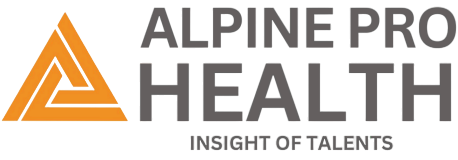The healthcare industry relies heavily on certified medical coders for revenue integrity and the reduction of claim denials. Medical coding is the backbone of accurate billing and reimbursement, ensuring that healthcare providers receive proper payment for services rendered. Certified Clinical Coders possess specialized skills to navigate complex coding systems, enhance compliance, and foster financial stability for healthcare organizations. This article explores the profound impact of certified medical coders on revenue integrity and denial management, illustrating their indispensable role in the healthcare ecosystem.
Understanding Revenue Integrity
Revenue integrity refers to the alignment of clinical records, medical coding, and billing processes to ensure accurate reimbursement for Healthcare Services. It encompasses compliance with regulations, ethical coding practices, and effective utilization of resources. Achieving revenue integrity is critical for healthcare providers to sustain operations and maintain financial stability.
Certified medical coders contribute to revenue integrity through meticulous coding practices that accurately translate clinical diagnoses and procedures into standardized codes. Their expertise minimizes errors, enhances compliance with payer requirements, and strengthens the foundation of billing accuracy.
Role of Certified Medical Coders in Improving Revenue Integrity
Certified Clinical Coders employ various strategies to uphold revenue integrity:
- Accurate Code Assignment: Certified coders assign precise codes for diagnoses, procedures, and services based on clinical documentation. Accuracy reduces discrepancies between the codes submitted to payers and the services provided, ensuring proper reimbursement.
- Compliance with Coding Guidelines: Coders adhere to coding standards, such as ICD-10-CM, CPT, and HCPCS, established by regulatory bodies. This compliance minimizes risks associated with audits and penalties due to coding errors or fraud.
- Thorough Documentation Review: Coders work closely with healthcare providers to ensure Clinical records is detailed and supports assigned codes. They provide feedback to improve documentation practices, enabling more accurate coding and billing.
- Proactive Training and Education: Professional Medical Coders
continuously update their knowledge to adapt to evolving coding guidelines and payer policies. Regular training enhances their ability to navigate coding changes effectively. - Utilizing Coding Software and Tools: Advanced coding software and tools, combined with coder expertise, streamline the coding process, minimize errors, and improve efficiency.
Role of Certified Medical Coders in Reducing Claim Denials
Claim denials can significantly impact the revenue cycle of healthcare organizations. Certified medical coders play a crucial role in minimizing denials through various strategies:
1.Identifying and Correcting Errors
One of the primary reasons for claim denials is coding errors. Ensuring clean claims, certified coders conduct detailed reviews of clinical documentation to catch and fix errors before submission. This proactive approach reduces the chances of denials and ensures a smoother reimbursement process.
2.Staying Updated with Payer Policies
Insurance companies frequently update their policies and guidelines. Professional Medical Coders
stay informed about these changes to ensure that coding practices align with payer requirements.This proactive monitoring helps minimize denials resulting from outdated or incorrect policy adherence.
3.Implementing Denial Management Strategies
Effective denial management involves analyzing denied claims to identify patterns and root causes. Certified medical coders collaborate with revenue cycle teams to develop and implement strategies that address these issues. By understanding the reasons behind denials, they can take corrective actions to prevent similar issues in the future.
Enhancing Compliance and Minimizing Risks
Certified medical coders uphold compliance with regulations and payer requirements, mitigating risks associated with audits and penalties. Their expertise ensures adherence to coding standards, ethical practices, and data security. By maintaining compliance, healthcare providers safeguard their reputation and financial stability.
Leveraging Data Analytics and Insights
Certified medical coders utilize data analytics to identify trends in claim denials, coding patterns, and revenue losses. These insights enable Healthcare entitys to implement targeted strategies for revenue optimization and denial prevention. Coders contribute valuable recommendations based on analytical findings, driving operational improvements.
Collaboration for Success
Effective collaboration between Professional Medical Coders and healthcare providers, and billing departments is crucial for achieving revenue integrity and reducing denials. Coders’ expertise complements clinical workflows, ensuring seamless integration of coding and billing processes.
Conclusion
Certified medical coders are integral to the financial health of healthcare organizations. Their precision, compliance, and proactive approach enhance revenue integrity and minimize claim denials, enabling providers to focus on delivering quality patient care. As the healthcare industry continues to evolve, the role of Certified Healthcare Coders remains indispensable in fostering financial stability and operational excellence.


